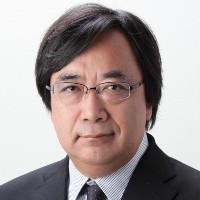The sixteenth annual BRICS (whose membership has grown from Brazil, Russia, India, China, and South Africa to also include Egypt, Ethiopia, Iran, and the United Arab Emirates) summit was held in Kazan, Russia, on October 22-October 24. 2024. We asked what was new and innovative at the summit this year, and how the bloc is changing the geopolitical context. Six Council of Councils (CoC) experts from BRICS member countries and beyond reflect on the future of the group and what expansion means for global governance.
BRICS as Diversification of the World Order
Global politics is a paradox. The acronym “BRIC,” coined by Goldman Sachs for its own marketing purposes, has evolved over twenty years into a community of the most influential non-Western states. The 2024 BRICS summit in Kazan, Russia, was an unqualified success for the Kremlin, and a clear indication that Russia's isolation only works from one side: the West. The rest of the world sees no point in joining in the policy of pressuring Russia, whether they endorse Russian behavior in particular cases or not.
But this is not the main significance of the summit. The BRICS (whose membership has grown from Brazil, Russia, India, China, and South Africa to also include Egypt, Ethiopia, Iran, and the United Arab Emirates) is an unusual community that does not bear the hallmarks of a traditional international institution. So far, it is a rather amorphous club with a single unifying principle: creating a space for interaction that bypasses Western states and institutions. An overtly anti-Western policy will not prevail in the BRICS, as the overwhelming majority of states there are not interested in aggravating relations with the West. But they are eager to have different options for building political and economic ties, free of U.S. and EU guidance and mechanisms.
This aspiration reflects objective changes on the world stage. First, the redistribution of potential—demographic, economic, military, and to some extent, technological—is creating the conditions for a shift away from the Western-centric system of world order. Non-Western countries have become much more confident in demanding change.
Second, the policies of the United States and the European Union, which insist on following their own visions and persecuting dissenters, are provoking rejection almost everywhere outside the Western community. This is not because of attitudes toward Russia, which vary widely outside the West, but because of the principle itself. Ideologically and politically motivated restrictions are perceived by the majority of international actors as an obstacle to normal development.
The further development of the BRICS will depend on many circumstances. Not all member states consider their participation in the bloc a priority. However, the general movement toward diversification of the world order and away from any one group’s domination will continue, and the BRICS will play an increasing role in this.
BRICS Reloaded: Economics, Oil, and Geopolitics at Kazan 2024
The October BRICS summit in Kazan, Russia marked a pivotal moment in the bloc’s evolution, showcasing key innovations, expanded energy trade, and greater global influence. The summit formally welcomed the new BRICS members: Egypt, Ethiopia, Iran, and the United Arab Emirates (UAE). Notably, Argentina, expected to join, opted out in late 2023 due to a policy shift under President Javier Milei, reflecting a significant geopolitical development in Latin America, while Saudi Arabia is still considering its formal invitation.
A core focus of the 2024 summit was modernising security and economic cooperation, with key discussions ranging from counterterrorism to carbon-unit trading. The summit also addressed critical security challenges including cybersecurity, terrorism, and regional stability. Historically, the BRICS have been more successful in opposing the Western dominance of global governance structures than articulating a clear, cohesive vision for reform. The increased diversity within the expanded BRICS bloc could complicate efforts to reach unified policy positions, particularly in multilateral forums such as the Group of Twenty (G20).
While the Organization of the Petroleum Exporting Countries Plus (OPEC+) will continue to manage the international oil market, the expanded BRICS energy profile could influence the sector in the long term. The inclusion of the UAE and Iran significantly boosts the BRICS energy profile, and if Saudi Arabia formally accepts BRICS membership, the bloc will represent 42 per cent of the global oil supply. The presence of major oil exporters alongside key importers China and India—both of whom did not favour Western sanctions on Russia—highlights the bloc’s potential to establish alternative trade mechanisms that bypass the dominance of the U.S. dollar and the financial influence of the Group of Seven (G7).
India reiterated its commitment to a balanced multipolar world and a reformed global order, advocating for resolving conflicts through diplomacy. Discussions with Russia centered on the Ukraine crisis, where Prime Minister Modi emphasized diplomatic solutions and offered assistance for the safe return of Indian nationals. In the first India-Iran talks since President Masoud Pezeshkian's election, priorities included regional stability and boosting trade through the Chabahar Port. Modi’s meeting with President Xi Jinping signaled a warming of India-China relations, with both sides agreeing to resume border patrols in Ladakh.
Finally, as a critical player in the BRICS and a leading voice for the Global South, India aims to expand its diplomatic influence, positioning itself as a bridge between Western powers and emerging economies. India advocated for greater cooperation in information and communication technologies and security, emphasising real-time geospatial data sharing for border security and the fight against transnational terrorism.
Additionally, the summit offered India an opportunity to further its strategic interests while managing the difficulties posed by China. India must carefully navigate this space going forward to avoid the bloc being dominated by Sino-Russian interests, which could strain its relations with the West.
The 2024 BRICS summit represented a significant moment for the bloc, with India playing a pivotal role in shaping its future. By championing innovation in security, economic cooperation, and multilateral diplomacy, India seeks to enhance its standing in an increasingly multipolar world.
The sixteenth BRICS summit in Kazan, Russia, marked a significant moment for the group’s evolution, as it was the first since the inclusion of Egypt, Ethiopia, Iran, and the United Arab Emirates (UAE). With Russia chairing the summit this year, Western media portrayed the event as dominated by Russian influence, speculating that the BRICS bloc was becoming a tool for its ambitions. However, instead of pushing for dramatic changes, the summit prioritised continuity.
It is crucial to distinguish between the BRICS as a collective and Russia’s individual goals. Decisions within the BRICS are based on consensus, which often moderates the positions of individual members. While Russia pushed for a more assertive agenda, it faced scepticism from other members, leading to a more balanced outcome.
Moreover, viewing the BRICS through an “anti-Western” lens overlooks the broader motivations of its Global South constituents. For many, like South Africa, the BRICS is not about moving away from the West but about diversification, especially in finance and trade. In the Kazan declaration, the BRICS positioned itself as a complementary entity to existing institutions like the Group of Twenty (G20), emphasising greater coordination led by India, Brazil, and South Africa, which currently hold consecutive G20 presidencies.
The summit’s discussions focused on contemporary global challenges, including supply chain issues and conflicts in the Middle East and Africa. Ukraine was mentioned only indirectly. The bloc remains committed to addressing broader structural challenges, such as reforming international financial institutions to make them more effective. Those issues took precedence over contentious geopolitical matters, reflecting a pragmatic approach to decision-making.
One such pragmatic mechanism being discussed is the BRICS Cross-Border Payment System, which aims to facilitate trade in local currencies. This is partly due to perceptions of increasing risk associated with the U.S. dollar. However, the move to local currencies is not only about de-dollarisation but rather a step towards cheaper, more efficient transactions. Russia, cut off from the Society for Worldwide Interbank Financial Telecommunications (SWIFT), sees it as a financial lifeline. In contrast, Egypt sees it as easing pressure on foreign reserves. Meanwhile, South Africa, Brazil, and India prefer cautious diversification without completely divesting from the dollar.
Another significant development was the effort to strengthen the New Development Bank (NDB), focusing on expanding loans in local currencies. The bank aims to provide 30 percent of financing in the local currency of borrowing members. The NDB’s growing role is crucial for countries seeking flexibility beyond the often-restrictive terms of traditional institutions.
The summit introduced a new “partner countries” modality, providing a participation tier below full membership but more involved than the BRICS+ outreach initiative, established in 2017 for informal engagement with Global South countries. This new partner status will grant access to BRICS initiatives without requiring the complex negotiations of full membership. The specific countries to be included in this new partner tier have yet to be announced, avoiding the confusion from 2023, when Indonesia, Saudi Arabia, and Argentina were invited but later declined or did not respond to the invitations.
BRICS Summit Is a Wake-Up Call for the West
The BRICS summit in Kazan, Russia, provided a stage for Russian President Vladimir Putin to show that he is not isolated internationally. The worst mistake the West can make is to underestimate its importance as a mere theatre.
The sixteenth BRICS Summit was historic for two main reasons. First, as expected, it provided an easy diplomatic victory for Vladimir Putin. The Russian president was able to show that he has not been isolated by trading an extra place in the Group of Seven (G7) for a central role in the “B9,” and possibly “B-more” in the future. Moreover, by progressing discussions on the prioritization of transactions in national currencies, he is further loosening the grip of sanctions. He could also claim the role of mediator by facilitating talks between the leaders of China and India for the first time in five years.
Second, and more importantly, is the first expansion of the group since South Africa joined in 2010. Not only did the summit add four new members, but more than thirty countries reportedly expressed interest in future membership. In fact, thirteen states have already been admitted to the newly created category of partner countries. While expansion may widen internal differences with negative implications for cohesion, it also demonstrates the growing appeal of the BRICS in the Global South.
Indeed, while all of the original BRICS members have long claimed leadership roles in the developing world, the expanded BRICS is emerging as the most consequential collective voice of the Global South. It should be read as a sign of growing discontent with the current Western-led global order. Rather than seeing it as a Russian propaganda plot or a Chinese tool, the West needs to see it as a wake-up call to listen carefully to the resentments, frustrations, and demands of the developing world.
The United States and Europe need to counter the new global narrative about divisions between the Global North and the Global South. To mitigate the appeal of the BRICS, the West should adopt a proactive strategy for the reform of established global institutions. It is indeed ridiculous that it is two permanent members of the UN Security Council, Russia and China, who are calling for a more representative global order. Similarly, it is not the West but China that is blocking the expansion of the Security Council to include India, its fellow BRICS member.
The West should exploit those contradictions and engage emerging powers in discussions on managed reform of the global system. Countries such as Poland—with fresh memories of poverty and autocracy—can play a helpful role in bridging the Global North and South and framing a new narrative that would weaken the appeal of the BRICS.
BRICS Gaining Momentum
There is a tendency to view the BRICS geopolitical bloc as a growing counterweight to Western influence. But as this year’s summit offered no proposals on how to reshape the current order, this does not seem to be the case. Russian President Vladimir Putin has lauded the fact that the BRICS has now surpassed the Group of Seven (G7) in the combined GDP, but in reality, it only serves as a means to conceal Russia’s isolation.
Russia, a nuclear power that is also a permanent member of the UN Security Council, continues to violate the sovereignty and territory of another country and has threatened to use its nuclear arsenal. However, that does not mean that the BRICS countries are aiming to build a new order that condones Russia's actions.
While the number of BRICS member states has expanded, so have the group’s objectives. Even between China and Russia—core members of the BRICS—fractures exist. A 2023 poll conducted by the Genron NPO shows that only 27 percent of Chinese citizens believe that Russia’s behavior against Ukraine is appropriate. Moreover, Russia and North Korea have entered into a military partnership. Plans are underway for Russia to support North Korea’s nuclear weapon development program, and North Korea has dispatched soldiers to fight in Ukraine alongside Russian forces. Now that Beijing is within range of Pyongyang’s missiles, it is easy to imagine just how concerned China might be.
Still, the BRICS now seems to be gaining momentum. This is due to the destabilization of the rules-based order and cooperative mechanisms established by the West that have been in place since the end of the Second World War. The partner countries announced at this year’s BRICS summit include Indonesia and Malaysia—both countries with large Muslim populations and growing opposition to the West’s position on Gaza.
The power of emerging countries and the Global South continues to grow. It is time for the West to determine how to rebuild the rules-based global order, not just oppose the BRICS.
BRICS as a Primary Channel for Global South
The BRICS summit in Kazan, Russia, saw the consolidation of the bloc as a primary channel for the Global South in dealing with world affairs. After its significant expansion in the last summit, the enlarged group of nine full members decided to adopt a BRICS partner country category. Though the Kazan declaration did not list the invitees by name, it was widely reported that thirteen countries were approved as BRICS partner countries. In keeping with the motto “BRICS and Global South: Building a Better World” for the BRICS dialogue at Kazan, Brazilian President Luiz Inacio Lula da Silva declared the motto for next year’s BRICS summit in Brazil as “Strengthening Global South Cooperation for More Inclusive and Sustainable Governance."
The puzzle for the West is why the BRICS is so attractive to countries in the Global South. The first reason is that the BRICS is an emerging major multilateral forum that is open to emerging markets and developing countries (EMDCs)(EMDCs). BRICS has welcomed EMDCs by developing an institutional expansion and partnership approach to engage with those countries, which is quite different from the exclusive club model of the Group of Seven (G7). The influence of the G7 makes it difficult for the Group of Twenty (G20) to engage with smaller EMDCs in an institutional way.
Secondly, BRICS countries support a shared vision by championing international cooperation and focusing on sustainable development. One main motivation for countries applying for membership to the BRICS is the diversification of their diplomatic and economic relationships.
It is impressive that Chinese President Xi Jinping identified the BRICS as a primary channel for strengthening solidarity and cooperation among Global South countries. Besides the strategic consensus among BRICS members and institutional developments such as the New Development Bank, it will be imperative for the most capable members of the group to keep this channel open for the Global South. Considering the active role that China, Brazil, and India have played in supporting the Global South in world affairs, closer ties are likely to develop between BRICS member states and the Global South in the future.












